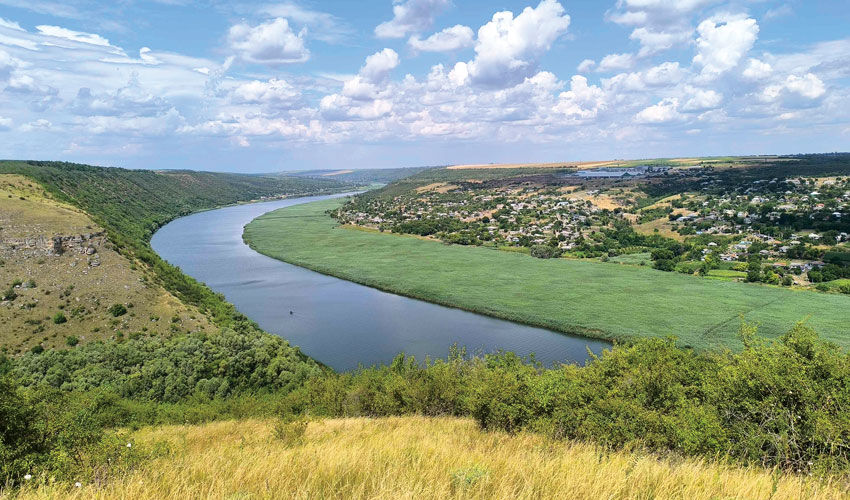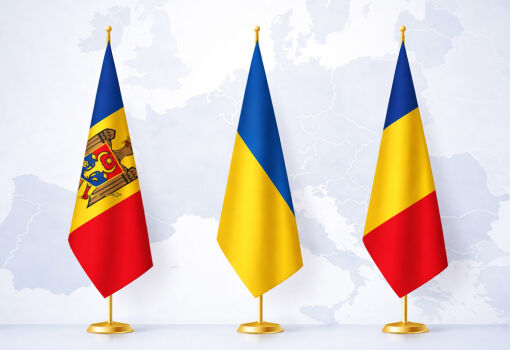
Since then, talks about the reintegration of the country within the borders of the former Moldavian SSR have been going on ever since, sometimes intensified, sometimes suspended, but on the whole it has not yet led to anything.
Formally, some actions between the Right Bank and the Left Bank are taking place. Last week, Moldova appointed a new deputy prime minister for reintegration, Roman Rosca. He is a native of Bender and previously worked in the police inspectorate of this city. As an MP from the PAS party, he headed the Special Commission for monitoring and controlling the implementation of Moldova’s reintegration policy.
In his turn, Transnistrian leader Vadim Krasnoselsky recently appointed a new co-chairman of the Joint Control Commission (JCC) from the Tiraspol side. Konstantin Kalinenok became the new co-chairman.
Between 2011 and 2024, Moldova implemented 14 state programs for the country’s reintegration, within which 586 projects worth over 189 million lei were financed. The program for 2025 envisages the financing of 30 community and institutional capacity building projects to be implemented in the settlements of the Security Zone. As well as partial compensation for farmers from the Dubasari district, who cultivate agricultural lands located behind the Ribnita-Tiraspol highway. They are obliged to pay fees when moving products through checkpoints illegally established by Tiraspol.
At the same time, it should be noted that the process of involving the economy of the unrecognized republic into the economic space of Right-Bank Moldova has accelerated in recent years. Joint customs checkpoints were established on the border between the so-called TMR and Ukraine, which allowed to direct the flow of goods from this direction into the legal direction.
However, there is no evidence that this has led to a reduction in smuggling through the unrecognized region. Counterfeit cigarettes and alcohol/cognac of unknown origin continue to be sold in the Central Market of Chisinau. Evil tongues claim that all this stuff comes to us from Ukraine via Transnistria. At the same time, residents of the Right Bank were left without medicines not registered in Moldova, which Tiraspol imported.
The cessation of Russian gas transit by Ukraine from January 1, 2025 has led not only to a humanitarian catastrophe on the Left Bank, but also to the fact that the Right Bank was left without cheap electricity. Now the self-proclaimed republic receives gas via Moldova in the volumes necessary for social needs, but without the right to use it for industry.
As a result, Transnistria’s exports have fallen by 51% over the past six months. This week it was announced that new tariffs for housing and communal services will come into effect in the region on January 1, 2026, averaging 5% higher than the existing ones.
Nevertheless, economic experts interviewed by Logos Press believe that the region’s economy will endure and the Moldovan authorities will need convincing arguments to bring the country’s reintegration process out of its current dormant state.
This week, Moldovan President Maia Sandu, in an interview with Newsmaker, gave her version of the conditions for resuming the reintegration process. Within five minutes, she said six times (!) that the main condition is the withdrawal of Russian troops from the territory of the self-proclaimed DMR. At the same time, she said that out of the large amounts of European money (1.9 billion euros as part of the Economic Growth Plan for Moldova) that had started to flow into the country, minimal amounts would be sent to the Transnistrian region. “We will not build roads and schools there.”
Earlier (in February this year), the president claimed that Moldova would not be able to cope with the reintegration of the Transnistrian region without external financial assistance. “We have approximate calculations. There is a period of preparation for reintegration, there we are talking about 300 million euros a year. From the moment of reintegration we are talking about large sums – 400-500 million euros a year. This is a big expenditure, we will need external assistance to cope. We do not have an agreement that someone will give us a few billion for use,” Maya Sandu said.
When asked whether there is a prospect of reintegration of the Transnistrian region in the near future, the head of the Center for Strategic Studies and Reforms, economist Galina Shelari said the following:
“To begin with, let’s clarify what meaning/purpose is put into the very notion of “reintegration”. Reintegration is the process of restoring on the right and left banks of the Dniester River the once-existing unified administrative/political structures that ensure sustainable interaction between economic agents. And, as a consequence, development and joint participation in international integration processes.
Unfortunately, in the history of Moldova’s modern development, there have been practically no real actions contributing to the achievement of mutually beneficial positive results with the lowest costs. Moreover, what is especially obvious in recent years, the actions undertaken as if to “motivate” economic agents from the Left Bank to integrate into the economic and legal environment of the Right Bank, lead not to the expansion, but, on the contrary, to the destruction of the still remaining remnants of industrial and technological ties.
There is no unity and there was no unity about participation in international integration projects by a “single team”. Today it is the process of preparation for accession to the EU. And here the issues discussed are not the issues of deepening interaction between the banks of the Dniester (it simply does not exist), not the creation of favorable conditions for activity, but the possibility of Moldova’s accession to the EU, at the first (?) stage, without Transnistria.
It is difficult to judge to what extent such (possible) prospect correlates with the reintegration intentions of the authorities”.

